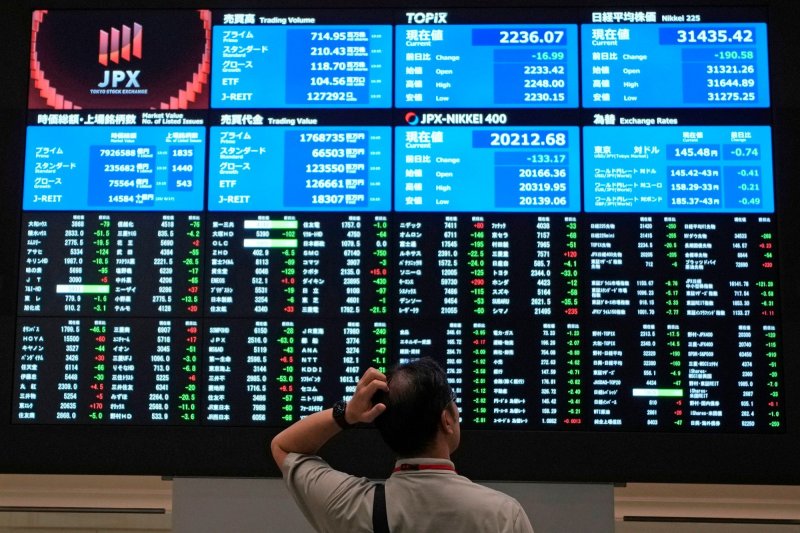Asian markets rose on Monday, with Tokyo up nearly two percent after Japanese Prime Minister Shigeru Ishiba’s decision to resign pushed down the value of the yen.
Investors were also digesting weak US jobs data, while crude prices climbed after eight key members of the OPEC+ alliance said they had agreed to again boost oil production, News.Az reports, citing foreign media.
“A combination of weak US labour market data coupled with rising political uncertainty in Japan dominated global markets as we started the week in Asia,” Michael Wan at MUFG said in a note.
Tokyo’s Nikkei index gained 1.9 percent, with Japanese exporters benefiting from a slide in the yen’s value — one dollar bought 148.14 yen in morning trade, up from 147.07 yen on Friday.
Japanese bond yields also climbed after Ishiba said Sunday he would step down after less than a year in power, heralding fresh uncertainty for the world’s fourth-largest economy.
Last week, the yield on 30-year JGBs hit a record high, following rises in the United States and Europe on the back of concerns about political uncertainty and public finances.
Potential candidates to be leader of Japan’s ruling party are “all likely to propose looser fiscal stances than Ishiba, hence further pressuring the long end of the curve, where demand for JGBs had already been waning quite significantly”, Brown said.
Hong Kong and Shanghai were 0.3 percent higher in morning trade, with Taipei up 0.5 percent and Seoul also gaining 0.3 percent.
Singapore rose 0.1 percent and Wellington was up 0.1 percent, but Sydney fell 0.3 percent.
Last week’s US jobs data has cemented expectations of a Federal Reserve interest rate cut later this month.
In Asia, “rising expectations of Fed rate cuts and with that lower US yields should be a welcome development to some extent providing some breathing space and policy room for Asian central banks”, said Wan of MUFG.
“Nonetheless, the key risk for Asian currencies would also lie in a sharp US slowdown and hard-landing recession through sharply slower exports to the US, which we stress is not our base case.”
News.Az


AloJapan.com